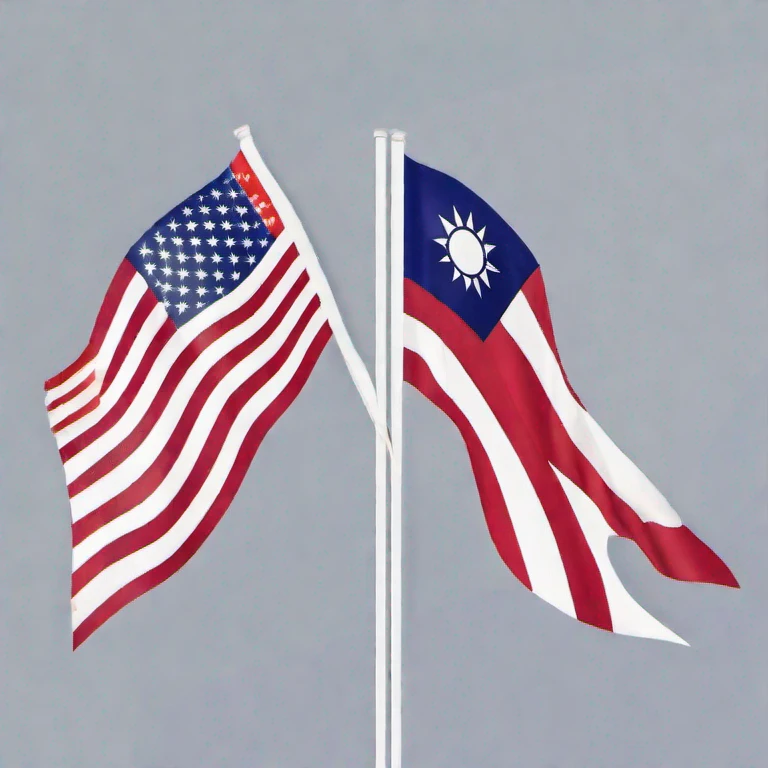The potential threat of an armed conflict between China and Taiwan poses a challenging dilemma for the United States. As global tensions rise, it becomes increasingly important to assess the moral obligations that should guide the U.S. in its response. Amidst the complexity of geopolitics, we must turn to both reason and wisdom from spiritual texts to address this question. This article aims to explore the compelling reasons for the United States to consider defending Taiwan, while drawing inspiration from fitting passages from the Bible that shed light on the importance of protecting the vulnerable against aggression.
Ensuring Freedom and Democracy
Taiwan stands as a beacon of democracy, upholding values cherished by nations around the world. By defending Taiwan, the United States would be safeguarding the principles of freedom, human rights, and democratic governance. Mirroring this sentiment, Ecclesiastes 4:12 stresses the significance of standing together in times of adversity, stating, “Though one may be overpowered, two can defend themselves. A cord of three strands is not quickly broken.” The U.S. has an ethical responsibility to stand alongside Taiwan in the face of aggression, for the sake of preserving shared democratic values.
Regional Stability and Security
A Chinese attack on Taiwan would destabilize the delicate balance of power in the Asia-Pacific region. It would embolden authoritarian states and signify a disregard for international norms and laws. United States’ defense of Taiwan would demonstrate a firm commitment to the maintenance of peace, security, and stability. Proverbs 16:7 offers guidance on pursuing peace when it states, “When a man’s ways please the Lord, he makes even his enemies to be at peace with him.” The U.S. can be a powerful advocate for peace by ensuring that any act of aggression is met with a resolute response.
Ethical Responsibility
The United States has long championed the cause of justice and humanitarianism on the global stage. With China’s vast military capabilities, Taiwan would face an overwhelmingly disproportionate force. As Matthew 5:9 reminds us, “Blessed are the peacemakers, for they shall be called sons of God.” The U.S. has a moral duty to actively work towards peaceful resolutions and protect vulnerable nations, such as Taiwan, from unchecked aggression. By defending Taiwan, the United States would uphold this responsibility, setting an example for nations to follow in the pursuit of global stability and justice.
Economic Interdependence
Taiwan is an essential player in the global economy, contributing significantly to regional prosperity. A Chinese takeover of Taiwan would disrupt international trade and destabilize economies worldwide. By defending Taiwan, the United States would not only protect its strategic interests but also demonstrate the commitment to preserving the global economic order. Proverbs 14:31 reinforces the importance of economic justice, stating, “Whoever oppresses the poor shows contempt for their Maker, but whoever is kind to the needy honors God.” Defending Taiwan aligns with this principle as it ensures the prosperity and well-being of a nation in need.
Our Moral Obligations
In the face of mounting tensions, the United States faces a critical decision regarding its role in defending Taiwan if China initiates military aggression. By prioritizing the values of freedom, democracy, regional stability, ethical responsibility, and economic justice, the United States can find guidance from both rational analysis and ethical precepts found in spiritual texts like the Bible. Defending Taiwan not only aligns with strategic imperatives but also upholds fundamental principles that should guide the actions of a just and compassionate nation. True leadership lies in our ability to protect the vulnerable and stand against aggression, fulfilling our moral obligations to create a more secure and peaceful world.
